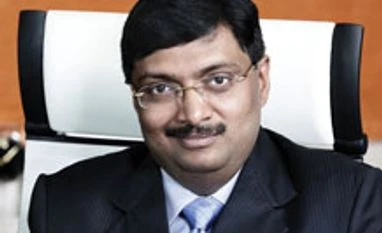Chokhani Securities was renamed U Gro Capital after Sachindra Nath, former chief executive officer (CEO) of Religare Enterprises, acquired the company in December 2017. In an interaction, Nath, who is vice-chairman (V-C) and managing director (MD) of U Gro, tells Manojit Saha that the increase in interest rates is not going to impact loan demand for customers from micro, small and medium enterprises (MSMEs).
With the Reserve Bank of India (RBI) barring Mahindra Financial, do you see non-banking financial companies’ (NBFCs’) recovery getting impacted in general and U Gro in particular?
There is an unserved market and there is an underserved market. We are in the underserved market. All our customers have existing credit lines and they are credit tested. Around 99 per cent of our collections are through the banking system. All our collection is in-house and whatever we outsource is largely reminder systems. We don’t have to go and collect physical cheque or cash. The RBI action will impact some segments of the market but not us. In our case, most of the loans are secured against physical collaterals and immovable property. Those are not done by agents. Recovery is mainly through the court process.
U Gro mainly extends loans to small businesses, particularly to the MSME sector. It has been growing at a fast pace, though on a low base. Do you see growth momentum continuing in the second quarter also?
We have given the numbers of not just this year but all the way to 2025. Our targeted assets under management (AUM) by the end of FY23 is slated to be Rs 7,000 crore. We should be around Rs 4,300 crore by September-end.
Do you think rising interest rates could dampen demand for fresh loans?
In the segment in which we operate, the premise is that data would transform the whole MSME credit in India. So, we could reach a level of consumer financing. Second, we operate in a customer segment having turnover between Rs 10 lakh and Rs 5 crore. All the eight sectors we cater to are in the consumption economy — health care, education, food processing and hospitality, among others. The transmission of interest rates is not as high as the need for credit demand for working capital and term loans. So, we don’t see that as a challenge. Also, a large portion of the cost implication of interest rate hike is borne by the NBFC and not end-customers. We do not expect fresh loan rates to go up.
Your cost of funds must have increased. How much would that be compared to May? You have recently raised funds via non-convertible debentures (NCDs) at 10.5 per cent interest rate. Are those cheaper than bank loans?
They are in the same band. We are technically a three-and-half-year-old organisation. In the liability side in India, we have two parts. One, you have around 10 NBFCs that are a part of a big corporate group. Their cost of borrowing is linked to parentage. For companies like us — who are standing on their own — on the basis of quality of capital, governance and management team, our costs of capital would remain elevated during the first five years. It will come down gradually over a period of time. We are seeing a gradual decline in cost of funds even as interest rates are rising because our initial cost was higher.
Do you have any capital-raising plans?
Given the rate of growth, we have said we will raise capital. We will keep our leverage below four times. If we reach Rs 7,000 crore of AUM — of which 35 per cent is off-balance sheet, our incremental capital requirement would be Rs 300-400 crore. We will raise it in the third or fourth quarter.
Many lenders see stress in the accounts that were restructured from the MSME sector during Covid. What is the percentage of loans from the restructured portfolio that is stressed, from where repayment is due?
We have allowed restructuring exercises for businesses where we felt revenue pick-up would happen post Covid. Restructuring will not serve the purpose of accounts, which cannot survive. Our restructured portfolio is about three and half per cent. Almost 90 per cent of the portfolio is current. Within the hospitality portfolio, and a very small portion of the restaurant, which is unsecured, around Rs 10 crore is under stress. This, we think, would not come back.
Unlock 30+ premium stories daily hand-picked by our editors, across devices on browser and app.
Pick your 5 favourite companies, get a daily email with all news updates on them.
Full access to our intuitive epaper - clip, save, share articles from any device; newspaper archives from 2006.
Preferential invites to Business Standard events.
Curated newsletters on markets, personal finance, policy & politics, start-ups, technology, and more.
)